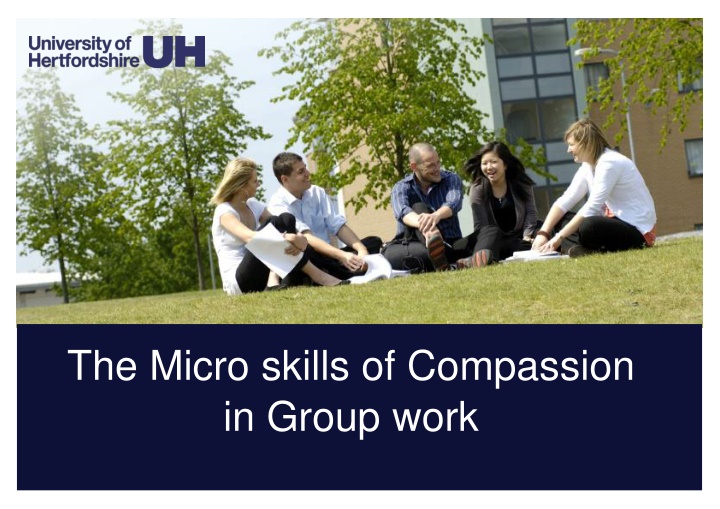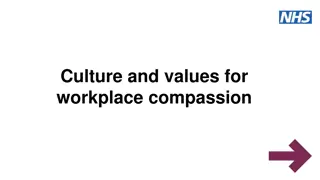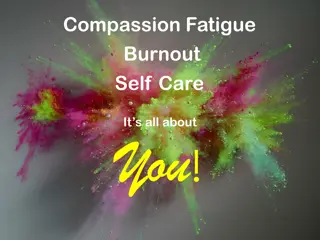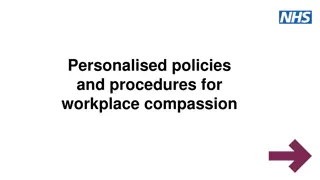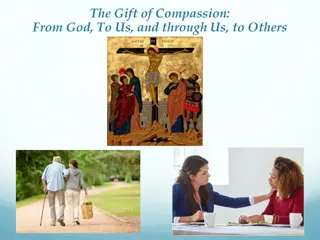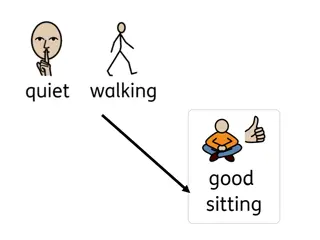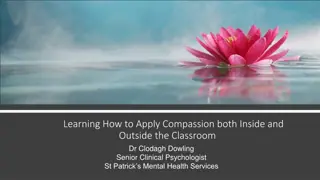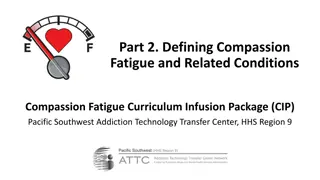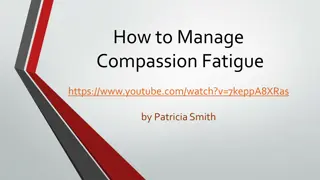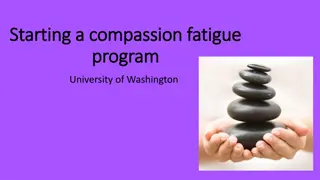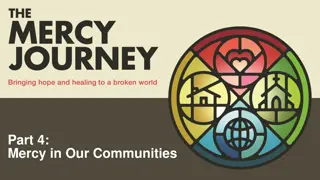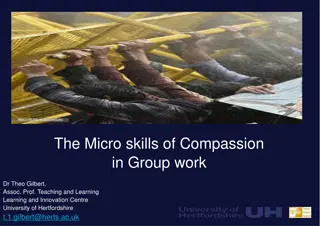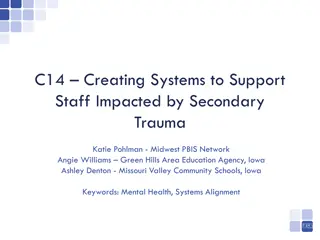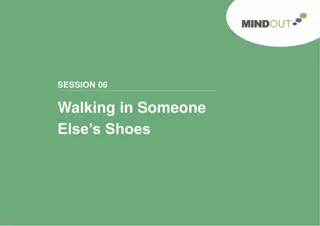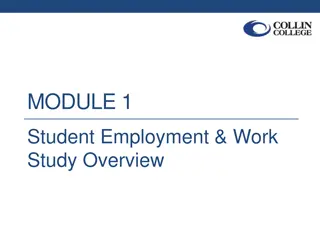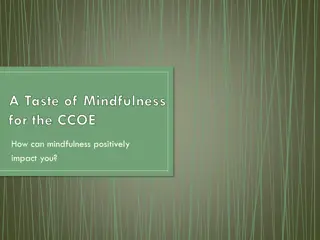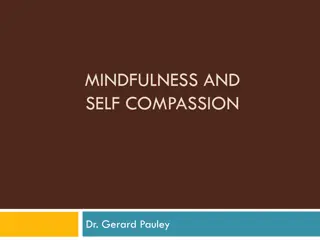Enhancing Compassion in Group Work: Understanding Student Experiences
Exploring the challenges faced by Black students in educational settings, this content delves into the importance of compassion in group work. It highlights the impact of cultural diversity, social dynamics, and academic outcomes on student experiences. The narrative emphasizes the need for fostering compassion and understanding to create inclusive learning environments for all students.
Download Presentation

Please find below an Image/Link to download the presentation.
The content on the website is provided AS IS for your information and personal use only. It may not be sold, licensed, or shared on other websites without obtaining consent from the author.If you encounter any issues during the download, it is possible that the publisher has removed the file from their server.
You are allowed to download the files provided on this website for personal or commercial use, subject to the condition that they are used lawfully. All files are the property of their respective owners.
The content on the website is provided AS IS for your information and personal use only. It may not be sold, licensed, or shared on other websites without obtaining consent from the author.
E N D
Presentation Transcript
The Micro skills of Compassion in Group work
National Union of Students (2009) explored why Black students are less likely to be satisfied with their educational experience and to attain first-class degrees in comparison to their White peers (p4). A survey of 938 black students: with 23 per cent describing it as cliquey 17 per cent as isolating 8 per cent as hostile and respondents often speaking of alienation and exclusion (p5). spawned from inside the classroom feeling left out of discussions and debates (p4)
The local BME student (Wallace & Cornelius, 2011; Broeke & Nicholls, 2007; Page-Gould et al, 2010) The working class student The international student (Turner, 2002, 2009; Haigh, 2002) (Mallman, 2017) The LGBT student (Vickerman and Blundell, 2010) The disabled student (Mobley and Johnson, 2015; Taulke-Johnson, 2008), The mature student (Chapman, 2017; Mallman and Lee, 2016; Fragoso et al, All that we share
If compassion is not an emotion, what is it? Noticing(not normalising) distress or disadvantaging of yourself and/or others AND Doing something (smart) to reduce or prevent that.
Two Key questions to begin the module. 1. What do I do in this seminar/group work to develop my fellow students social and learning experiences that they most value in me? 2.What do my fellow students do in this seminar/group work to develop my social and learning experiences that I most value in them?
Academic Outcomes The same sample of students (n=38) completed both assignments on a single UG Business module 80 70.93 68.5 70 67 66.25 69.62 65.41 60 56.25 50 53.35 Percentage marks 40 30 20 10 0 Local Black (n=8) Local Ethnic Minority (n=17) Essay International (n=5) Local White (n = 8) Seminar Mean percentage marks awarded per student 'category for critical thinking
Compassion focused Pedagogy for interculturalising students When I go into seminars I find any other Muslim people there . Most of the others, I m probably not gonna talk to them to be honest. So I was thinking, Oh my God. What if no-one talks to me? But as soon as I got into a group I was fine, I was fine We just got into the discussion and it flowed really well. (S28)
Compassion for higher cognitive processing and interdependent self. We were sort of analysing I know I was. I was like watching each other. What s the body language like? (BAME S24) I felt not as one person but I felt as a person within an entity and the entity was my group . like we re all focused on it [the task]. (BAME S29)
Academic Results: After Compassionate micro skills taught for group work (228 computer science students) With thanks to Dr Martina Doolan, NTF
Impact of Compassion focused Pedagogy on student outcomes on their piece of work, I would listen to how they achieved this how valued their input is. I also made sure I was showing gratitude. (S185) .during discussions I always made sure to leave spaces for other people. (S100) I was worried being the oldest person and the only non-native English person .having ten years of working experience with people from different cultures and backgrounds, I never found it as smooth as this time. Outside of university, we re still hanging out together. (S110)
The feedback from this session was absolutely phenomenal. I had about 30 emails from students saying how much it had affected them; how much they were more compassionate to each other. Debbie Sharp, Midwifery, University of Hertfordshire I showed my Business PG students the compassionate micro skills to use in their group work. They were so grateful I could have cried. Norton-Bertram-Smith, University of Aberdeen
Im convinced that its compassion I'm closer to this group of students than to any group I've taught in years. Many of my students are saying it s the most exciting learning experience they ve had at university. They didn't know, they said, that learning could be like this This is life-changing work. Prof Karen Edwards, University of Exeter
The Micro skills of Compassion in Group work Taught & Credit-bearing on Degree Programmes https://compassioninhe.wordpress.com Theo Gilbert t.1.gilbert@herts.ac.uk
You Tube Webinars on the compassionate micro skills in HE so far on : and hosted by San Diego University Norton Bertram-Smith University of Aberdeen Andrew Marunchak University of Hertfordshire Ann Pettit Anglia Ruskin University Dr Caroline Harvey University of Derby
Core Assessment/Marking Criteria for use of the Micro Skills of Compassion in discussion group work (Allocated 10% - 35% of marks in current HE practice) Commendation 69-60%) Category of Assessment Distinction (70% +) Pass (59-50%) Marginal fail F (49-40%) Clear fail (below 40%) * . . 1.1 2.1 Excellent use of eye contact and inclusive body language; eliciting, encouraging and acknowledging the contributions of others; asking for clarity or elaboration; checking the understanding of the group. Very good use of eye contact and inclusive body language; eliciting, encouraging and acknowledging the contributions of others; asking for clarity or elaboration; checking the understanding of the group. Good use of eye contact and inclusive body language; eliciting, encouraging and acknowledging the contributions of others; asking for clarity or elaboration; checking the understanding of the group. Body language signals little interest in what is said by others, or may focus on one or two other students only. Either monopolises or makes little contribution to discussion. Speaks too fast, or inaudibly. Body language signals little or no interest in what is said by others, or may focus on one other student only. Either monopolises or makes little contribution to discussion. Speaks too fast, or inaudibly. 2.2 Interpersonal and discussion skills.
Three kinds of eye contact in face to face group discussion
Excluding eye contact tends to be linked with monopolising behaviour. Inclusive eye contact appears to positively steer groups into an equal spread of participation around the group; and with increased quality of individual and group critical thinking (Vertegaal, et al, 2002, 2003). Avoidant eye gaze The student avoiding others gaze is often unable to notice signals of non verbal support around the group. This is
A typical route into discussion group dysfunction : An alpha pair (Bion, 1971) Transitioning to single Monopoliser
What can students do about those who are too shy to speak?
Suggestions for students: You could invite them by name into the discussion ask for their opinions. What do youthink, Sara? When they are pushed out of the discussion by confident speakers who like to talk over others, find another chance to invite the shyer ones back in later. Tell them that when they speak, if they suddenly are shy and have no more to say, they can pass the hot potato . That is, they can quickly say to any other student So what do you think, Steve?
S13: And .you realise, "Well no, we re also responsible for making sure other people have things to say and want to talk." S13 PG female, second year/run of stage three, focus group transcript, p9, lines 294- 297
What can you and your student colleagues do on the spot about students who have not read/not prepared for seminars or tutorials?
Tips for students: You are on your table with people you don t know again this week. So . Think of being at Wimbledon for your inclusive eye contact as though you were speaking to a single organism, not three separate people.
An possible overview for teaching staff:
STEP THREE ASSESSED SEMINAR 1. The final small group discussions, at the end of the module, are filmed and each student is assessed according to criteria seen next. STEP THREE - - FINAL ASSESSED SEMINAR FINAL STEP TWO - - HOMEWORK 1. After each weekly lecture, students read independently on the topic of the lecture. - - IN WEEKLY SEMINARS 2. In small groups, students share the research they have each done, presenting for discussion one at a time. 3. Tutor facilitates students to support each other with the micro-skills of compassion. STEP TWO HOMEWORK: STEP ONE 1. Speed meeting. 2. What is compassion? 3. Small group whole group consensus on: a. Noticing unhelpful seminar behaviours. b. How to address these compassionately. STEP ONE - - SEMINAR ONE SEMINAR ONE IN WEEKLY SEMINARS
